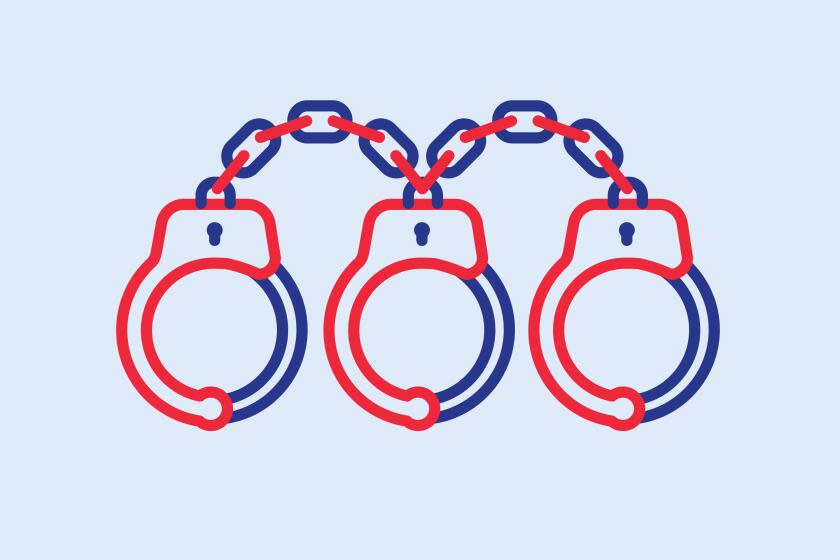Your guide to Proposition 36: Stiffer penalties for some drug and theft crimes

For the record:
6:36 p.m. July 10, 2024: A previous version of this article stated that Proposition 36 would change the law to make a third conviction of theft, regardless of the value of the merchandise, a felony punishable by up to three years in prison. In those cases, a person could face a sentence in either county jail or prison.
This measure asks voters to change parts of Proposition 47, a controversial ballot initiative passed in 2014 that turned some nonviolent felonies into misdemeanors.
What will the measure do?
Under Proposition 36, an offender with two prior convictions for theft could be charged with a “wobbler” felony regardless of the value of the merchandise, meaning a judge would retain discretion to reduce the charge to a misdemeanor. The ballot measure also allows judges to sentence convicted drug dealers who traffic in large quantities of hard drugs, including fentanyl, or who are armed with a firearm while trafficking the drugs to state prison instead of county jails. Proposition 36 also would authorize greater consequences for hard drug dealers whose sales of fentanyl kill or seriously injure a person who uses those drugs, and would authorize a judge to warn convicted dealers that they could be charged with murder in the future if someone dies as a result of the drugs they sold.
It is expected to cost the state hundreds of millions of dollars annually.
Who are the supporters?
Proponents include prosecutors and law enforcement leaders, including the California District Attorneys Assn., which is mostly comprised of conservative prosecutors, and the California Sheriff’s Assn. Noteworthy politicians who support Proposition 36 include San José Mayor Matt Mahan and San Francisco Mayor London Breed. The California Republican Party has endorsed the measure.
Large retailers, such as Walmart, Target and Home Depot have been major contributors to Proposition 36.
Supporters argue that tougher criminal penalties are needed to curb theft and the rising use of fentanyl.
Who are the opponents?
Gov. Gavin Newsom and top Democratic legislative leaders initially opposed asking California voters to alter Proposition 47, but then proposed their own ballot measure as an alternative to the prosecutor-led, tough-on-crime measure. They quickly withdrew that proposal, however, just days after announcing it.
Criminal justice reform groups and human rights activists have been outspoken against altering Proposition 47, saying that it will lead to an increase in the state's prison population and the associated costs. California Attorneys for Criminal Justice, which is composed of criminal defense attorneys, has called it "draconian."
Past coverage
Read more: Tough-on-crime measure officially qualifies for November ballot as rifts in Legislature mount
Read more: Signatures roll in for tough-on-crime ballot measure to reform California's Proposition 47
Read more: Newsom has approved three California prison closures but resists pressure to shutter more
Read more: Can California curb retail theft without changing Prop. 47? Assembly Democrats unveil their plan
More election news
This story originally appeared in Los Angeles Times.

 Yahoo News
Yahoo News 
